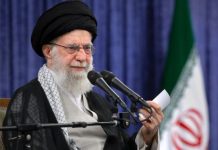Muhammad Mohsin Iqbal
The longstanding relationship between Pakistan and Malaysia is rooted in shared cultural, religious, and political values, reinforced by mutual respect and cooperation across various sectors. Both nations, being Muslim-majority countries, have developed close diplomatic ties, often collaborating in regional and global forums. The upcoming visit of Malaysian Prime Minister Dato’ Seri Anwar Ibrahim to Pakistan highlights the strength of these ties and presents an opportunity to expand cooperation in key areas like trade, energy, and tourism.
Dato’ Seri Anwar Ibrahim, accompanied by a high-level delegation, will visit Pakistan from Wednesday to Friday at the invitation of Prime Minister Shehbaz Sharif. This visit underscores the importance of Pakistan-Malaysia relations, with discussions set to focus on enhancing cooperation in trade, connectivity, agriculture, the halal industry, and cultural exchanges. The two leaders will also address regional and global developments, reflecting their mutual commitment to progress in the broader Islamic world.
Historically, the relationship between Pakistan and Malaysia has been shaped by shared aspirations for development. Diplomatic engagements have emphasized economic cooperation, defense collaboration, and educational exchanges. Since the 1960s, when both nations were newly independent, high-level bilateral visits have played a crucial role in strengthening ties. Notably, Malaysia’s long-serving Prime Minister Dr. Mahathir Mohamad was instrumental in expanding trade and economic cooperation between the two countries. His multiple visits to Pakistan highlighted Malaysia’s desire to collaborate on trade, education, and technology.
On Pakistan’s side, leaders like President General Pervez Musharraf and Prime Minister Imran Khan have also played significant roles in strengthening the relationship. The signing of the Malaysia-Pakistan Closer Economic Partnership Agreement (MPCEPA) in 2007 was a turning point, as it significantly boosted bilateral trade by reducing tariffs and facilitating market access. As a result, both nations have benefited from expanded trade, with Pakistan exporting textiles, rice, and agricultural products, while Malaysia supplies palm oil, electronic goods, and machinery.
Malaysia is currently one of Pakistan’s largest trading partners in Southeast Asia, and both nations are now looking to further expand this relationship. Areas of focus during Prime Minister Anwar Ibrahim’s visit will likely include agriculture and the halal industry, as both nations seek to capitalize on the growing global demand for halal products. The halal industry holds significant potential, with both Pakistan and Malaysia being well-positioned to lead global production in sectors ranging from food to pharmaceuticals.
Energy cooperation is another area of mutual interest. With Pakistan’s growing energy needs and Malaysia’s expertise in renewable energy, both countries have an opportunity to collaborate on sustainable energy solutions. Malaysia has made considerable progress in solar and hydropower, and Pakistan could benefit from this expertise as it works to diversify its energy sources and address chronic power shortages. Both nations recognize the importance of energy infrastructure and are likely to explore partnerships that promote innovation and sustainable growth.
Education has also played a key role in strengthening ties between the two countries. Over the years, many Pakistani students have pursued higher education in Malaysia, benefiting from the country’s high-quality universities. This exchange of knowledge not only enhances individual capacities but also strengthens people-to-people ties. Expanding these academic exchanges would further enhance the intellectual and professional capabilities of both nations, deepening the relationship on a societal level.
In defense, Pakistan and Malaysia have collaborated closely over the years, engaging in joint military exercises and sharing expertise in defense technologies. Both countries are committed to maintaining regional stability, and defense cooperation is likely to remain an important aspect of the relationship. In multilateral forums such as the United Nations and the Organization of Islamic Cooperation (OIC), Pakistan and Malaysia often align on key issues affecting the Muslim world, including the plight of the Rohingya and the Palestinian cause.
A lesser-known but highly significant aspect of Pakistan-Malaysia cooperation lies in the intellectual domain, particularly in the area of economic development. Dr. Mehboob-ul-Haq, a renowned Pakistani economist and architect of the Human Development Index (HDI), played a key role in advising Malaysia on its economic policies during the 1980s. His work was instrumental in shaping Malaysia’s development strategies, focusing on human development, poverty reduction, and equitable growth. His contribution is a testament to the intellectual bonds that have tied Pakistan and Malaysia together in their pursuit of economic progress.
As Dato’ Seri Anwar Ibrahim’s visit approaches, it is evident that both Pakistan and Malaysia are looking to strengthen their historical ties in ways that will benefit both nations in an increasingly interconnected world. The focus on trade, energy, education, and people-to-people contacts will likely drive future cooperation. Both countries recognize the strategic importance of enhancing their partnership in light of regional and global challenges, from climate change to economic instability.
In conclusion, the relationship between Pakistan and Malaysia is built on a foundation of shared values and strategic interests. The upcoming visit provides an opportunity to further enhance this relationship in areas that matter most to both nations—economic development, sustainable growth, and regional stability. As both countries look toward the future, this visit is expected to mark another step in deepening their partnership, benefiting Pakistan, Malaysia, and the broader region.

















